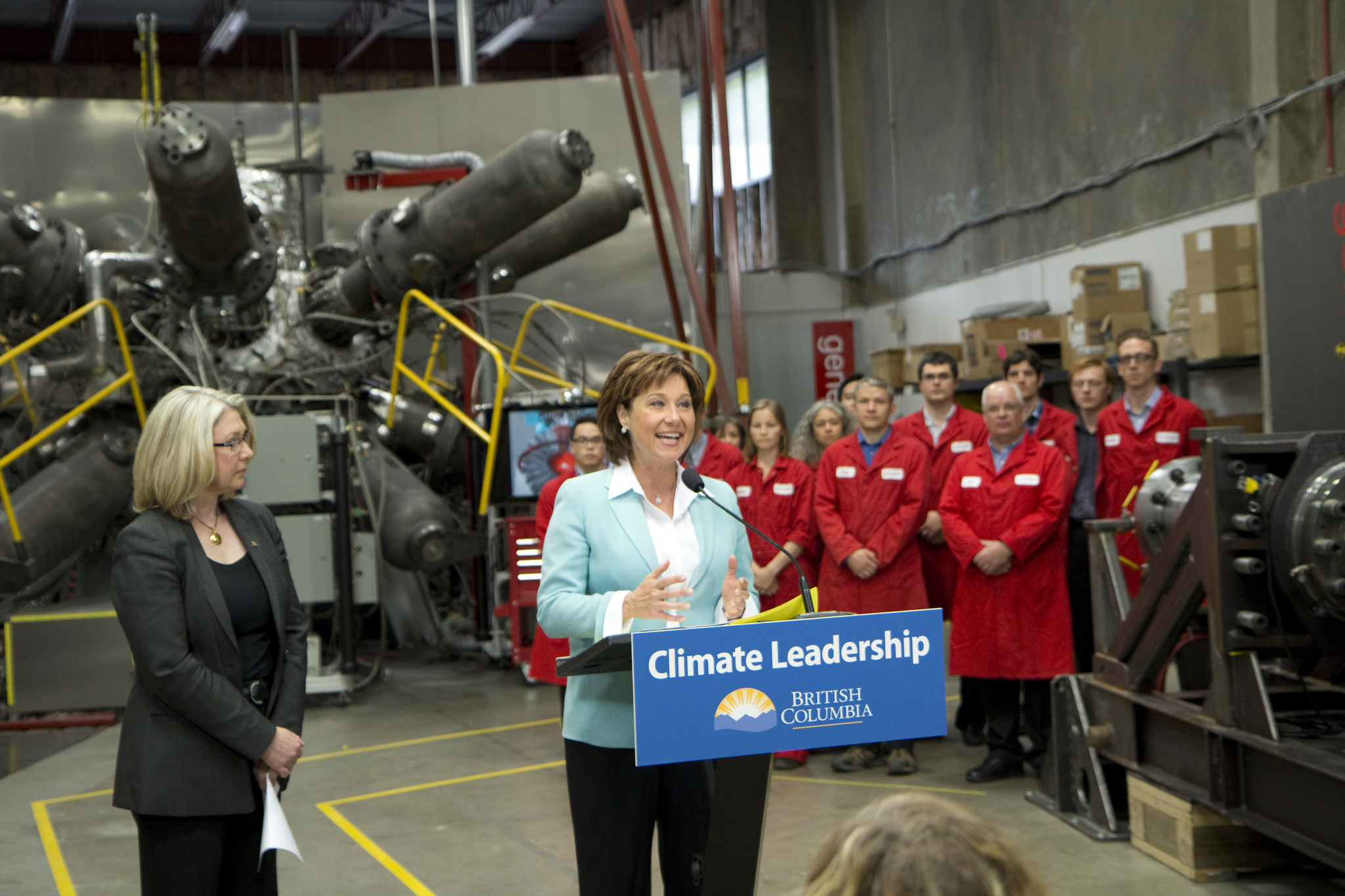The federal government’s new plan to implement a national price on carbon allows the British Columbia government to keep its own carbon tax frozen until 2020. But the current B.C. tax level is too low to keep the province’s emissions in check, say two opposition parties.
“They’re essentially planning to do nothing,” said George Heyman, the NDP’s environment critic, commenting on the B.C. direction under Premier Christy Clark. “Her record’s been rising emissions since the day she took office and froze the carbon tax.”
The federal government is planning to require provinces to have a price of at least $10 per tonne of carbon dioxide equivalent emissions starting in 2018. The price would rise $10 a year for the next four years, reaching $50 a tonne by 2022.
That means the requirement won’t reach B.C.’s price of $30 per tonne until 2020, the level where the government froze the province’s carbon tax in 2012.
Federal Environment Minister Catherine McKenna said last week, while announcing environmental approval for the Pacific NorthWest LNG proposal to build a liquefied natural gas terminal at the mouth of the Skeena River, that B.C. had agreed to raise its price on carbon in line with the federal plan.
Clark said she welcomed the Canada-wide price on carbon, and in a Sept. 28 speech to the Union of B.C. Municipalities convention in Victoria reaffirmed a commitment to keeping any increases to the province’s carbon tax revenue neutral, meaning any new revenue would be offset with cuts to other taxes.
As recently as August, Clark had ruled out increasing B.C.’s carbon tax until the rest of Canada caught up, despite advice from a Climate Leadership Team of experts appointed by her government. That panel recommended increases of $10 per tonne starting in 2018.
The NDP’s Heyman said his party is looking at the “well thought out” recommendations of the Climate Leadership Team, discussing them, and preparing a climate plan to be released this fall.
“We’ll certainly be clear that the [BC] Liberal version of the carbon tax is not fair to the vast majority of British Columbians,” he said. The revenue neutrality provisions tend to reward the wealthy and corporations and need to be restructured so they are fairer for low- and middle-income families, as well as people in rural B.C., he said.
According to last February’s budget, the carbon tax was projected to raise $1.285 billion. Businesses were expected to get nearly twice as much back through tax cuts and other measures as were individuals.
Heyman said there’s also a need to put some of the money raised through the carbon tax intro green infrastructure such as transit, a policy NDP leader John Horgan included in his own speech to the UBCM on Sept. 29 and has discussed previously.
Under the BC Liberal plan of freezing the carbon tax, emissions aren’t projected to drop back below today’s levels until 2030 and there’s no target until 2050, Heyman said. “Emissions will continue to rise for the foreseeable future.”
Green Party Leader Andrew Weaver, who was in Ottawa for Trudeau’s announcement, released a statement calling the national plan “a welcome start” and saying the Canadian government needs to invest in moving to a carbon neutral economy.
He also called for a renewed focus for the provincial government. “British Columbia should develop its own aggressive timeline for increases to its carbon tax,” he said. “The effectiveness of our tax has been greatly reduced by not increasing it... British Columbia needs to make the pricing of carbon a centrepiece of our approach to economic development in order to properly and adequately address climate change.” ![]()
Read more: Environment
















Tyee Commenting Guidelines
Comments that violate guidelines risk being deleted, and violations may result in a temporary or permanent user ban. Maintain the spirit of good conversation to stay in the discussion.
*Please note The Tyee is not a forum for spreading misinformation about COVID-19, denying its existence or minimizing its risk to public health.
Do:
Do not: